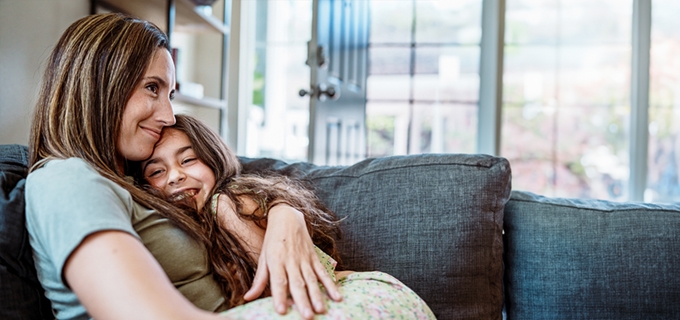Search for a doctor or hospital in your network.


Search for a doctor or hospital in your network.

Get News & Updates Directly To Your Inbox

You know your child best. You can support them now and in the future by showing them ways to build good mental health.
Good mental health is an important part of total health. Mental health includes our emotional, psychological and social well-being, says the Substance Abuse and Mental Health Services Administration. ![]() Our mental health affects how we think and feel. It determines how we act. It also influences how we handle stress and make choices. Mental health is vital at each stage of life, from childhood and teen years through adulthood.
Our mental health affects how we think and feel. It determines how we act. It also influences how we handle stress and make choices. Mental health is vital at each stage of life, from childhood and teen years through adulthood.
The Centers for Disease Control and Prevention says mentally healthy children have a positive quality of life and can function well at home, in school and in their communities. They reach developmental and emotional milestones and learn healthy social skills and how to cope when there are problems.
Many children sometimes have fears and worries and may show disruptive behaviors. That doesn’t mean there is a mental health problem that needs to be addressed. But if the signs of a problem are serious and persistent and interfere with school or other activities, share your concerns with your child’s doctor.
Anxiety and depression are common issues for children. They may show up as fear, worry or sadness. Some children may be angry or grouchy.
These issues can also rob children of good sleep and bring on headaches or stomach aches. Often children won’t share their worries, so some signs are easy to miss.
Mental Health America offers a list of some of the changes in behavior to look for:
Let children know it’s just as important to take care of their mental health as it is to take care of physical health. Encourage them to share their feelings. Make sure they know it’s OK to reach out if they’re sad or worried.
Learning to identify and manage self-defeating thoughts can be one way to cope. It’s also helpful to find new ways to build social relationships. That can help with anxiety, depression and loneliness. Committing to help others is another way to fight loneliness.
Learning ways to process and release emotions is a key skill for children and adults. These are habits that will help the whole family’s mental and emotional resilience:
If self-care steps don’t make a difference, talk with your child’s doctor. They may be able to help or suggest a qualified therapist, counselor or psychologist.
What they’re eating, or not eating, may be affecting your family’s mental health. Research shows that nutrition can play a vital role in regulating our mental and emotional health. Learn more.
Originally published 7/1/2022; Revised 2023, 2024
Blue Cross and Blue Shield of Texas, a Division of Health Care Service Corporation,
a Mutual Legal Reserve Company, an Independent Licensee of the Blue Cross and Blue Shield Association
© Copyright 2026 Health Care Service Corporation. All Rights Reserved.
Verint is an operating division of Verint Americas, Inc., an independent company that provides and hosts an online community platform for blogging and access to social media for Blue Cross and Blue Shield of Texas.
![]() File is in portable document format (PDF). To view this file, you may need to install a PDF reader program. Most PDF readers are a free download. One option is Adobe® Reader® which has a built-in screen reader. Other Adobe accessibility tools and information can be downloaded at https://www.adobe.com/trust/accessibility.html.
File is in portable document format (PDF). To view this file, you may need to install a PDF reader program. Most PDF readers are a free download. One option is Adobe® Reader® which has a built-in screen reader. Other Adobe accessibility tools and information can be downloaded at https://www.adobe.com/trust/accessibility.html. ![]()
![]() You are leaving this website/app ("site"). This new site may be offered by a vendor or an independent third party. The site may also contain non-Medicare related information. Some sites may require you to agree to their terms of use and privacy policy.
You are leaving this website/app ("site"). This new site may be offered by a vendor or an independent third party. The site may also contain non-Medicare related information. Some sites may require you to agree to their terms of use and privacy policy.
Powered by Verint